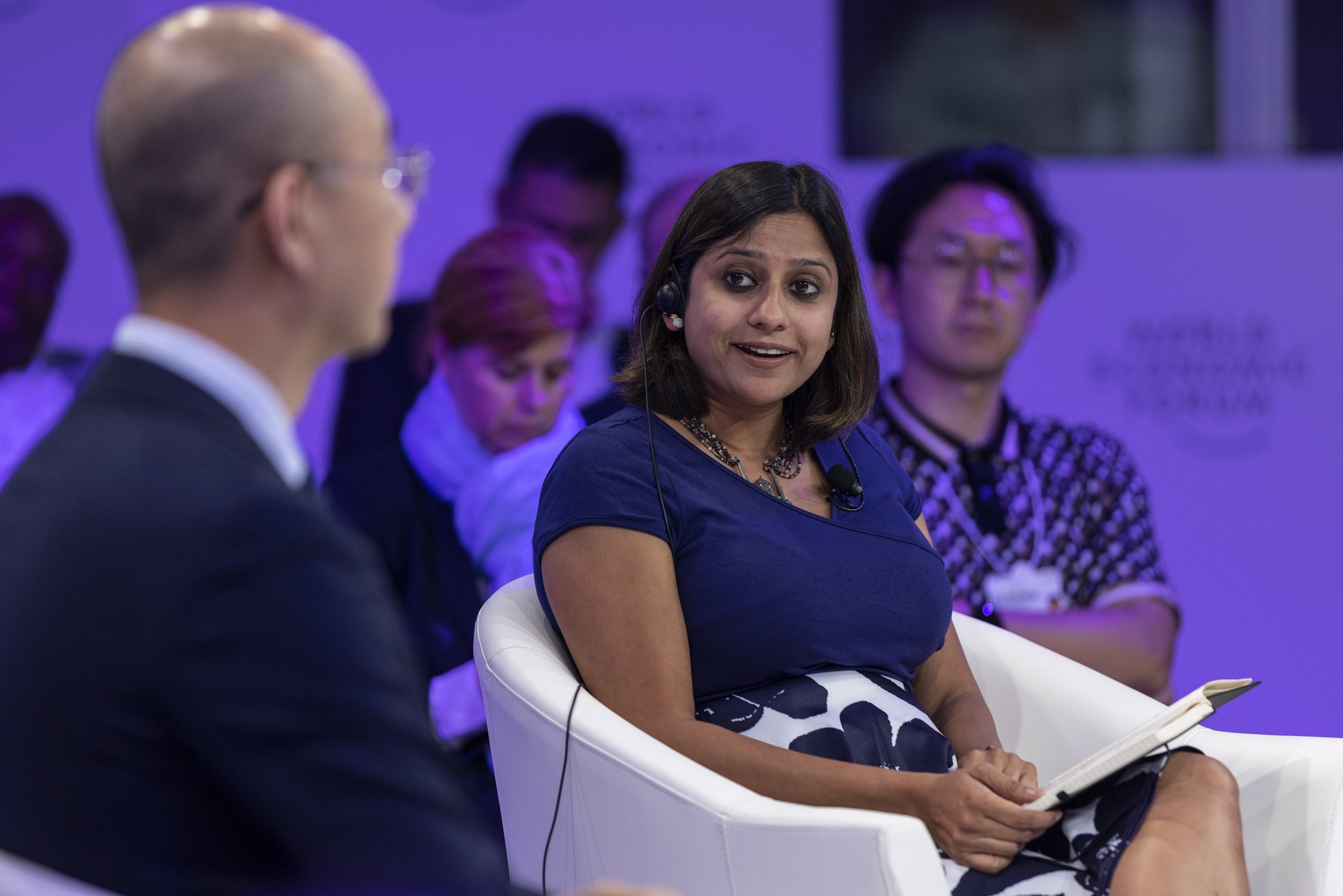Insider talks innovation at the World Economic Forum's 14th Annual Meeting of the New Champions
Insider’s UK Bureau Chief, Spriha Srivastava, moderates key panels at Summer Davos
The global economy is transforming
Insider UK Bureau Chief Spriha Srivastava took center stage at the World Economic Forum’s 14th Annual Meeting of the New Champions during Summer Davos.
More than 1,500 global leaders gathered in Tianjin, China, to discuss the world’s most pressing socio-economic issues in the years following the onset of the COVID-19 pandemic. Traditional business and industry models have been challenged due to increased competitive geopolitical and geoeconomic influences – but the staggered pace of progress has left consumers feeling uncertain and smaller businesses disadvantaged.
Similar questions can be heard around the world: Are we in a recession? Is AI coming for my job? What’s going on with the climate crisis?
Srivastava moderated two panels, “Frictionless Payment” and “Innovating for the Planet” at the conference to address these urgent concerns. Below are a few takeaways from each conversation.
Frictionless Payment: Setting the Stage
This dynamic conversation featured Sebastián Claro, professor of economics at la Universidad de los Andes; Royal Chen, vice president at Tencent Financial Technology and Tencent Holdings Ltd.; Ning Xuenfeng, senior partner at King & Wood Mallesons; and Jeremy Allaire, cofounder and CEO at Circle Internet Financial LLC. The panel examined streamlining cross-border payments (a goal for G-20) with leaders spanning industries from fintech to law.
According to the World Economic Forum, cross-border payment transactions have increased from $29 trillion in 2019 to $39 trillion by 2022, heavily influenced by the evolution of digital transformation and e-commerce. While global enterprises and large organizations have primarily benefited from this progress, small and medium-sized businesses are still facing barriers to expand into international markets.
International transfers can take several business days and costs can add up to 10% of the transaction value. Srivastava pointed out how this disproportionately “eats into revenue” for SMBs.
Panelists also shared the importance of making cross-border payments easier for consumers and businesses alike, the complex legal considerations, and how compliance as innovation can remove these barriers.
Here are Srivastava’s top three takeaways from the conversation:
1. We need all the stakeholders — the central banks, the commercial banks, the businesses, and the regulators — on board to create an overarching structure that more smoothly enables cross-border transactions.
2. There are still some concerns to address, including data protection and anti-money laundering. In a world where cybersecurity is constantly at risk, it’s important for stakeholders to take these considerations into account when creating structures.
3. Consumers and small businesses are the worst hit with high fees when making digital payments across borders. Apps like WeChat and Alipay have made it easier in China, but how can this be implemented across the world?
Innovating for the Planet
Insider and WEF partnered to program “Innovating for the Planet,” a platform for candid conversation about the climate crisis with leaders across sectors, including Sabrina Peng Yijie, chief sustainability officer at Ant Group; Peya Mushelenga of Ministry of Information and Communication Technology of Namibia; Ma Jun, chairman of Green Finance Committee and China Society for Finance & Banking; Lim Seok Hui, CEO of Philanthropy Asia Alliance; Joseph Luc Ngai, chairman at McKinsey & Company Greater China; and Børge Brende, president of the World Economic Forum Geneva.
The continued prosperity of societies and economies requires net-zero and nature-positive transitions, including the reshaping of industrial systems while safeguarding livelihoods and mitigating insecurities.
Innovation and technological advancements have equipped sustainability-focused changemakers with improved resources to drive these efforts within their industries and communities, but have failed to close the gap between silos.
A major cog is missing in the machine – collaborative partnerships between philanthropy, public, and private sectors – impeding positive global change.
The panel, composed of executive representatives from each sector, explored shared priorities and challenges and began to identify areas for increased collaboration.
Here are Srivastava’s three main takeaways from the conversation:
1. The panelists agreed that while a lot of effort has been made to tackle climate change, the stakeholders seem to be working in silos. It's important to break these silos and collaborate.
2. The panel focused on the how, rather than the what, of climate change. The panelists came up with ideas and suggestions on how the three Ps — public, private, and philanthropy — can work together to achieve the net-zero target.
3. The panelists also suggested adding a fourth ‘P’ to the partnership: people. There is a growing awareness around climate change and it is important to tap into the strength of the people working to solve it.
If you would like to learn more about how Insider is taking strides toward a more sustainable and equitable future, reach out to marketing@insider.com and visit our new destination, “One Planet.”



